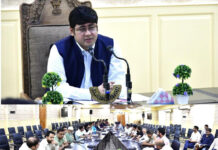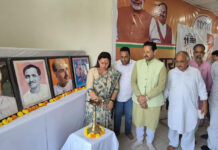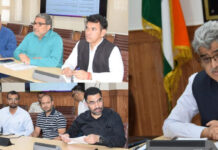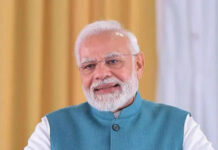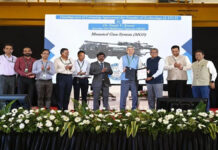In a stirring address during Vigilance Week, Chief Minister Omar Abdullah called upon the people of Jammu and Kashmir to unite in the fight against corruption. This clarion call is more than a mere rhetorical flourish; it underscores a critical necessity for fostering transparency and accountability within government operations. The history of governance in the region has often been marred by allegations of corruption, inefficiency, and misuse of power, leading to a palpable distrust among the citizenry. Rebuilding this trust is imperative for the effective functioning of democracy and the rule of law.Corruption not only hampers the efficiency of government operations but also perpetuates a cycle of poverty and disenfranchisement among the populace. Despite the government’s expressed commitment to combat these issues, instances of bribery and corruption within various departments continue to surface. Reports of officials demanding bribes for essential services and the misuse of positions for personal gain are concerning. This reality highlights the need for a fundamental shift in the culture of public service, where integrity and public welfare must take precedence over personal interests.While Chief Minister Abdullah’s initiatives, such as the introduction of online tracking systems for public services and the establishment of complaint cells, represent significant steps toward greater transparency, the success of these measures hinges on their diligent implementation. Technology can be a powerful ally in the fight against corruption, but without robust oversight and accountability, these systems may fall short of their intended purpose. Public officials must embrace these tools not only as a means of compliance but as a genuine commitment to serving the people.Moreover, the responsibility for eradicating corruption cannot rest solely on the shoulders of the government. Citizens must also play a proactive role in holding their leaders accountable. This entails being vigilant, reporting corrupt practices, and advocating for transparency in governmental processes. Public engagement in governance, including participation in decision-making and oversight, is essential for creating an environment where corruption cannot thrive.As expectations from the government evolve with each new administration, it is crucial to recognize that the fight against corruption is a collective endeavor. It requires collaboration between government officials, civil society, and the general public. Together, we must cultivate a culture of integrity, where the pursuit of public welfare overrides personal gain. Only through concerted efforts can we aspire to achieve a corruption-free governance model, ensuring a brighter and more equitable future for the people of Jammu and Kashmir.

Dogra Herald is the media of J & K, breaking language and geographical barriers, connecting J & K to the rest of India.
0191 245 4946
info@dograherald.com
Latest articles
PM Modi to address 82nd edition of Mann Ki Baat on Oct 24
iamjkstarr - 0
NEW DELHI: Prime Minister Narendra Modi will address the 82nd episode of his monthly radio programme 'Mann Ki Baat' on October 24.
Raids underway at multiple locations in J&K
iamjkstarr - 0
State Investigation Agency (SIA) carried out raids at multiple locations in south Kashmir on Saturday morning.
As per reports,...
J&K: Three-headed sculpture of Lord Vishnu recovered from Jhelum
iamjkstarr - 0
In a rare archaeological find, a three-headed sculpture of Lord Vishnu, which dates back to the 9th century, was found in the...

